CONTENTS
Best Beach Campsites Around The UK – Tips For An Unforgettable Coastal Camping Trip!
Beach camping in the UK is not only wonderful for invigorating one's mind, but also a fantastic family beach holiday idea. Imagine beach volleyball in the glorious sun and the sound of waves gently in the distance. What's not to like?
However, beach camping and overnight beach stays in the UK are not entirely rule-free and have their limitations. So, we have collated some approved UK coastal campsites where you can spend your break without any issues. Also, you'll be provided with tips on how to pack lightly when heading to the beach, and advice on how to safely camp close to the sea.
Why Go Beach Camping? Why Beach Camping Is The Way to Go?
It’s indeed far a lot easier to simply book a tent at a commercial campsite with water, fire, and everything. But where’s the fun in that? While these organised and professional campsites by the sea are safe and convenient, they lead the customers astray from the true goal of camping, which is to reconcile with nature, and to some extent the campers themselves. It’s just a half-baked adventure.
Beach camping is the polar opposite of that. Setting up a campsite that’s virtually adjoining the crest of the rolling wave is thrilling in its own right, and it’s as close as one can get to living in nature – relinquishing the perks of modernity, reconciling with oneself and mother nature in the process.
There are further benefits to seaside camping. It’s cheaper, by a long shot, than other forms of accommodation. For maybe up to £40 a night (and that’s the expensive end of the spectrum), you could get our own private beach with no other people remotely around. That is, if you plan to camp at a popular site. Smaller, under-frequented campsites on the beach are much more affordable and are far less crowded. Besides, beachfront rentals are completely out of the equation when the conversation about price arises. There’s no way you get a beach view room for that kind of money.
>> Check out: Camping Checklist – Pack These Camping Essentials Before Your Trip To Any Campsite
Top 10 Campsites by The Beach for A Memorable Beach Camping Trip
1. Troytown Farm, Isles of Scilly
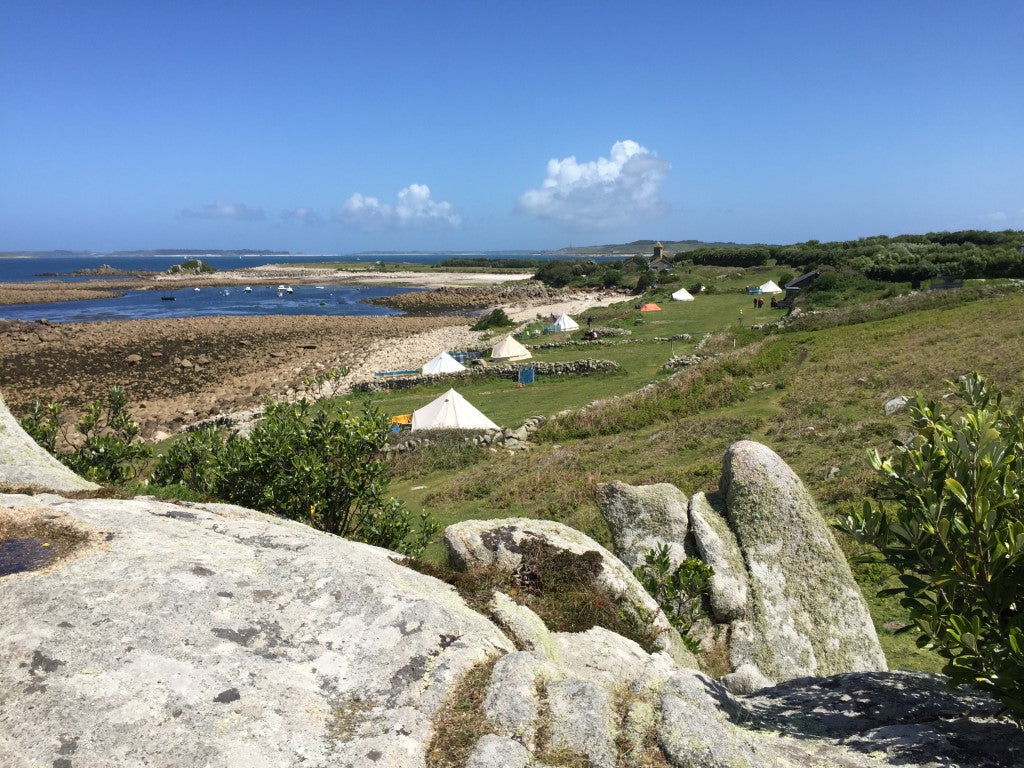
Troytown Farm campsite by Andrew Abbott, CC BY-SA 2.0, via Wikimedia Commons
The Isle of Scilly is far-off and remote, which is exactly why it’d make a peaceful beach campsite. The place is a dairy farm of a small scale, with just nine cows, yet its homemade ice cream is heavenly, so do give it a try.
Located on the western shore of St Agnes, southwestern most of the island, the farm’s right next to the sea. The beach is just one mile in width, so sauntering around in the sunset is just gorgeous. Do walk on, though. The Gugh island is accessible through a sandbar during low tide, and it’s full of surprises.
2. Lepe Beach Campsite, New Forest
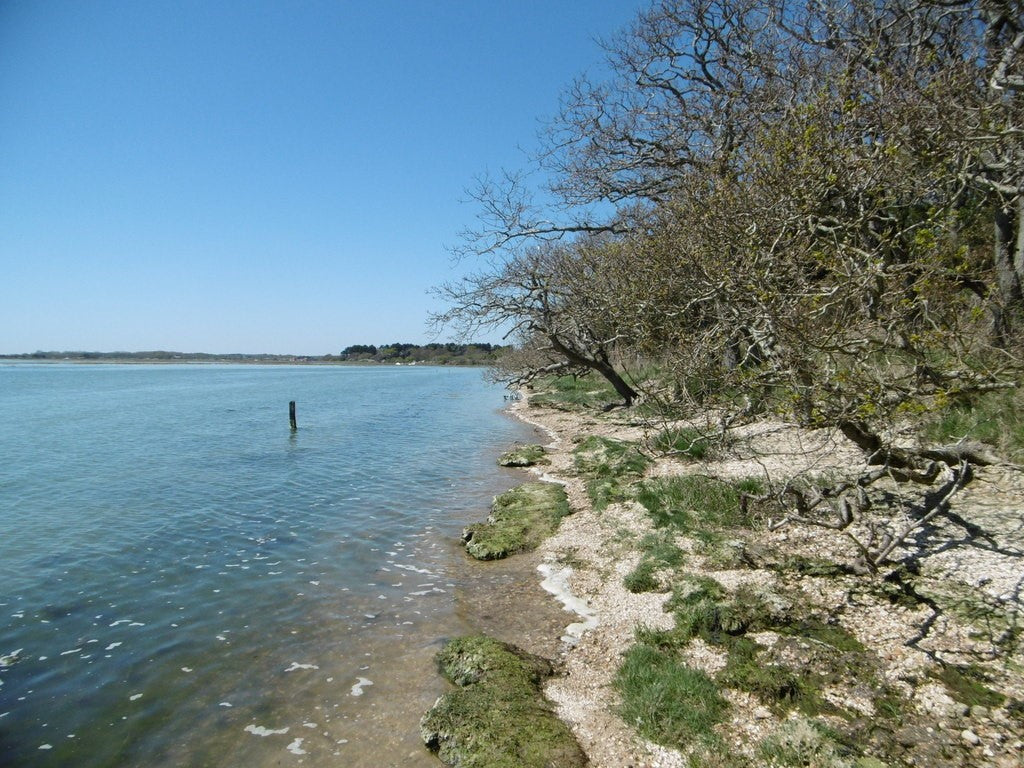
Lepe, coastline by Mike Faherty, CC BY-SA 2.0, via Wikimedia Commons
Lepe Beach isn’t the definition of a glorious beach, but as a coastal campsite, it’s serene in its own right.
The Lepe Beach Campsite is practically a stone throw away from the beach, which offers a stunning view of forest and ocean. There are also a wide range of activities such as hiking and horse riding, to water sports.
Established relatively recently in 2017, whether the vision of the founder was a back-to-basic camp or not, the camp is rudimentary, with no electricity. However, campfires are allowed, which many may prefer.
The Exbury Garden is just a 45-minute walk away from the campsite. This 200-acre garden is famous for its collections of several rare flowers, and often hailed as the first garden of its kind in England.
3. Ravenglass Campsite, Lake District
Another outlandish campsite destination, but Ravenglass absolutely delivers as an amazing seaside campsite.
This small haven is located in a 6-acre area and is just half a kilometre away from the beach. The campground is great for exploring the coastal regions of the Lake District National Park. It’s also a charming Roman fishing community.
Up to 70 caravans, motorhomes, trailer tents, and tents can be accommodated in this private and serene area. There are plenty of hardstandings for campers and motorhomes, as well as a wonderful tree-lined space for renters. Three wooden sleeping pods, contemporary toilet and shower facilities, and a spacious parent/child shower room are also available at the park.
4. Mousehole Camping, Cornwall
Mousehole is a mesmerising village, and it’s right around the corner from the Mousehole Camping.
Mousehole Camping is a small yet friendly campsite. It’s open for booking every summer, with sufficient facilities such as toilets, showers, freezers, electricity, and parking space, which makes for a perfect family camping spot.
What’s greater is that the campsite is within walking distance of the small village of Paul. It may be small in area, but it captures the soul of a countryside village. The Kings Arms, the local pub, is cosy and well-adorned, facing the church on the other side of the street. The old tall building in the middle of the village is believed to date back to the 4th century.
If you ever wondered why the name is a bit … off, it actually came from the nearby village, with only a few houses gathered around a quaint harbour. It was here that the Spanish first landed, with the only surviving building that reads "Squire Jenkyn Keigwin was killed here 23 July 1595 defending this house against the Spaniards.”
5. Shell Island, North Wales
While it’s true that the vast majority of visitors come here in search of some lovely shells (hence the name), Shell Island is much more than just that. Covering an area of 300 acres, this is one of the largest camping sites in the entirety of Europe.
Situated atop the Snowdonia National Park, it boast wonderous view over both land and sea. If you’re looking for a place to indulge in the tranquillity of the countryside.
Shell Island gets its name from the abundance of shells washed after winter storms and high tides. Ardent shell lovers can find up to 200 different types here. Even if you don’t come to hunt for some shells, there’s a boatload of things to do, like birding, fishing, swimming, sightseeing, etc.
6. Burnbake Forest Lodges and Campsite, Dorset
Nestled in the tranquil and remote Dorset countryside, Burnbake Campsite and Forest Lodges is a genuinely magical forest getaway full of adventure and the perfect location to relax and unwind.
The spirit of Burnbake is freedom, whether you're camping beneath the stars or sleeping in a luxurious forest lodge fitted for living in the woods. Children can mess around, adults can enjoy the break from the stresses of everyday life, and everyone can have some good old-fashioned fun. It's an idyllic site to develop family memories that will last a lifetime, with the stunning Jurassic coastline on our doorstep and the seductive undulating hills of Dorset all around.
7. Nant-y-Big, Wales
Situated on the Llyn peninsula, the “edge of Wales”, Nant-y-Big is more of a far-flung choice for avid campers. But with the scenery it has to offer, a trip over there is more than worth the effort.
This large camping site offers up to three options to pitch your tent. The first one is the nearest to the office and facilities, which is nice if you’d like to stay close to basic amenities. The second one is called the Panoramic view, which, as the name itself suggests, offers a breath-taking view of the peninsula. The third is down on the shore right close to the rolling wave. If water-based activities are your thing, you’re going to love this spot.
The Nant-y-Big is pretty close to other places of interest as well, most notably Abersoch. There’s a great variety of food and drink options in town, and a decent chunk of thrilling water sports spots.
8. Heritage Coast Campsite, Wales
It’s not like Snowdonia is any short of tourist attractions. From Gower and the Beacons to the Pembrokeshire coast, there’s always places to visit in Snowdonia. There’s one place that’s often overlooked though, the Glamorgan Heritage Coast Path. That’s where the Heritage Coast Campsite comes in, to bring the underappreciated beauty of this coast into the limelight.
The 35-mile coastline is nothing short of spectacular. As of late, a national trail has been opened, which has introduced many people to the view of and from this stretch of coastline. Along the coast, visitors will get to enjoy the white beaches of Whitmore Bay, the famed sand dunes of Merthyr Mawr, and numerous tiny villages. The Heritage Coast Campsite is the perfect middle ground for passengers to explore all of the goodness of this coastal region, offering a wide range of services, from traditional camping to modern glamping, and F&B establishments.
9. Elm Farm, Cornwall
This bike-shop-turn-campsite didn’t make a name for itself through camping, but that doesn’t mean that it’s anything less than an appealing one.
Established in 2014, this family-run site was originally a bike shop, with a small café mainly to aid the cycle-centre business. Not long after, having realised the potential of the land in their possession, the family decided to set aside to meadows for a campsite business model, with just 25 pitches. As of now, while still mainly known as a cycling gathering, camping here is just as exciting.
At just 25 pitches, there is ample space for outdoor activities, but heading out to neighbouring areas is also worth considering. If you must walk, you’re welcome to, but since this is a bike shop anyway so do rent one as they are dirt cheap. Pedal south to Portreath beach or north to Porthtowan, both only 15 minutes away to explore Cornwall’s 19th century mining industry.
10. Smugglers Cove Boatyard, Snowdonia
Rounding out the list, we have a slightly fancier option in Smugglers Cove Boatyard. Nestled among the forest in the Dyfi Estuary, this campsite is a hidden little heaven, treating only those who undertake the treasure hunt to get to it in the first place.
The place was originally a slate work that overlooked the Dyfi Estuary. For the longest time, it served as a boat hub for sailors. Nowadays, even though nautical activities still continue, it is now used as a campsite. Along the coast, there are three individual pitches from which visitors can enjoy a heavenly view of the coast.
11. Whitesands in Pembrokeshire, South Wales
Right next to the bright blue sea, Whitesands Camping definitely offers lovely views across to charming Ramsey Island and a few other little ones nearby. It’s also a top gathering spot if you’re into surfing big waves or fancy a dip in the cool sea for a bit of snorkelling.
And the best part? You don't have to book in advance. Simply turn up on the day that suits you, take your place, and say hello to "Famous" Pete (the friendly chap who looks after the site). You should see him outside the car park ticket office.
12. Sango Sands Oasis in Durness, Scotland
If you’re after a proper wild and peaceful spot for beach camping in UK, Sango Sands is a real gem. It's usually open from early summer through to late autumn.
In Durness, during peak summer months, the sun doesn’t set until around 10 or 11 at night. So, you'll certainly have plenty of daylight to venture out and visit some of the fantastic caves nearby. And please, get yourself along to the world-famous Smoo Cave, where everyone raves about its extensive, rolling terrain and the thundering waterfalls deep inside.
If your legs get weary from walking around, just sitting and gazing at the sea in front of you will make your spirit feel uncomfortably satisfied. And the views? Absolutely stunning. You can expect to enjoy bright, golden sunrises and radiant sunsets over the Atlantic.
13. Bryher Campsite in the Isles of Scilly, Cornwall
Tucked between two gentle hills and embraced by the mild Atlantic breeze, it’s no surprise that Bryher is a family-friendly spot for a peaceful break. You’ll rarely hear the sound of traffic here. This means that the kids can totally enjoy a safe, open space to run around and explore the local plants and surprising wildlife.
When you are not participating in family activities, you will be getting lost in the calm tranquillity of the sea stretching out before you. And don't be surprised if you are constantly reaching for your camera, especially when you spot some small puffins scrounging in the shallow water ahead.
14. Clachtoll Beach in the Scottish Highlands
It’s pretty hard to describe just how wild and untouched the campsite on the Stoer Peninsula really is. When you're there, you can see (as we did!) all sorts of incredible wildlife, such as Minke whales, black dolphins, and cute otters. Loads of fascinating seabirds, such as guillemots, curlews, and short-eared owls, are also commonly spotted near the beach.
And if watching a superb sunset is on your agenda, why not go on a ferry ride to the captivating Harris and Lewis islands? There's a lot of nice walking and lush landscape to enjoy north and east of Scotland, too.
How to Pack Your Stuff for An Unforgettable Beach Camping Trip
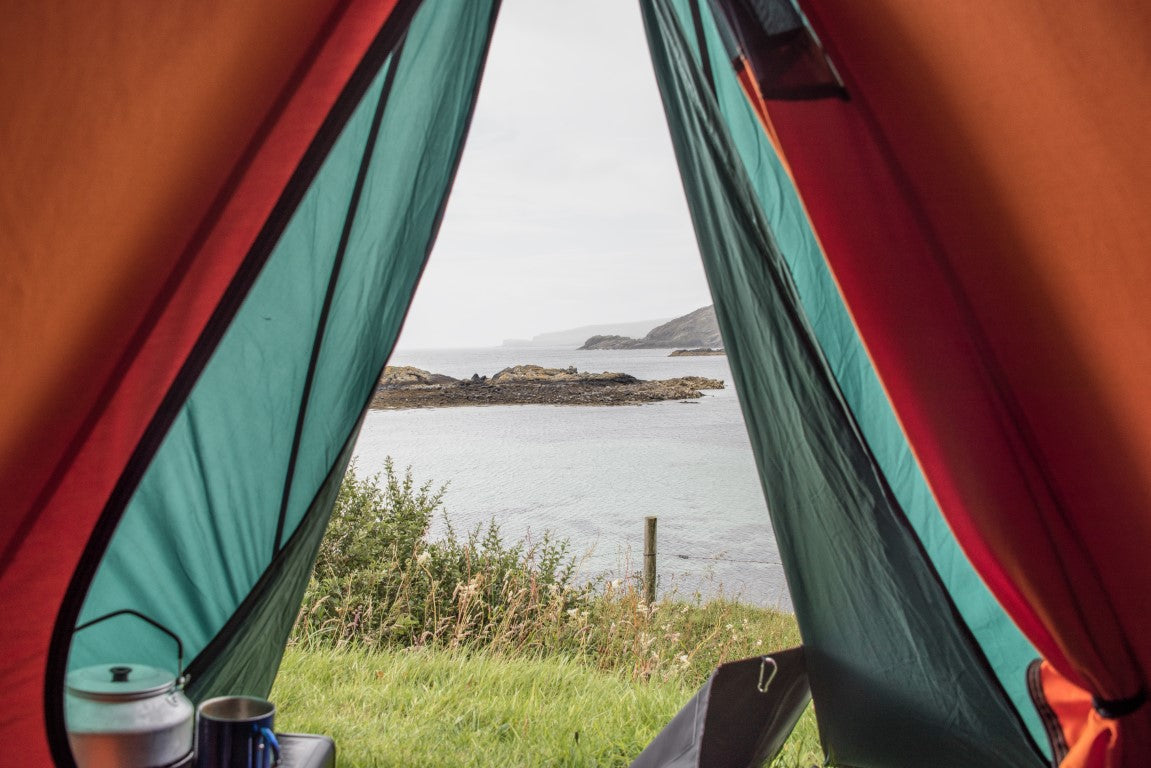
Preparation is the key to success, and that holds true even for this situation. If you want to enjoy your beach camping trip to the fullest, make the best and most thorough preparation prior to the trip.
You’d think that prepping for a camp night by the beach is easy, yet it is anything but. A beach camping trip is very different from a traditional camping trip in the forest. Brace yourself for strong winds and huge waves.
>> Check out: Best Camping Backpacks
Take a Tent and Sleeping Stuff
-
A coastal camping tent that wards off wind, rain, and bugs. Make sure it is large enough for all the members in your excursion.
-
The necessities for setting up the tent are solid pegs, guy ropes, and a mallet for hammering the pegs into place.
-
A comfortable pillow and sleeping bag per person that is warm for evening temperatures but light for mornings. Add an insulating mat or air mattress, with a groundsheet, to be dry and comfortable.
-
A few additional items to make your campsite a bit more homely, like a hanging tent light and tarp or pop-up awning for protection from the elements. Bring a light table and a couple of folding chairs.
-
Bin bags and a few cleaning odds and ends – always clean up after yourself. Leaving no garbage behind is one of the golden rules of beach camping in the UK.
Pack Light Clothes, Toilet Items, and a Basic First Aid Kit
-
Light wind or waterproof jacket, swimwear, snorkelling gear, and long trousers for country walking.
-
Some comfortable, quick-dry bits you prefer to wear when beach camping.
-
UV protection spray or cream, sunglasses, swim goggles, and a hat to avoid the sun.
-
Good walking shoes with a firm tread (very handy for scything over rocks).
-
A comfortable pair of flip-flops or sandals to wear on sandy or rocky terrain, and two spare pairs of socks (in case).
-
Towel, hairbrush, toothbrush, and razor.
-
Miniature bottles of shampoo, shower gel, hand soap, toothpaste, and shaving cream.
-
A small first aid kit is never misplaced when beach camping in UK, especially for minor cuts or common complaints like headaches or a stomachache. Keep some plasters, insect repellent, fast-acting painkillers, anti-diarrhoea medicine, and wound antiseptic.
Pick Up Your Cooking Bits and Bobs
-
A compact gas or charcoal beach camping stove (not all beaches allow open fires), and a spare fuel supply in case of an emergency.
-
A saucepan, frying pan, kettle, cutlery, cups, and a big bottle or container to hold clean water.
-
A tin opener and an insulated bag or cool box to keep your drinks cold and protect your fresh food from the sun.
Grab Waterproof Backpacks and Bags for Beach Camping in UK
-
A roomy backpack to keep all your beach camping equipment in one place. An item like the CabinZero ADV Backpack does the trick very well. It's amazingly light, water-resistant, and perfect for unpredictable seaside conditions.

Pick CabinZero's ADV backpack – your trusty sidekick for every adventure.
-
A mini bum bag for the essentials you'd prefer to keep by your side, like your phone, wallet, or shades. The CabinZero Bum Bag is a practical choice with a stunning design and adequate water protection for seaside vacations.
-
A pair of packing cubes to help keep your things tidy. Items like the CabinZero Packing Cubes make separation between clean and dirty clothes as well as the safety of your electronics from any moisture easy.
Don’t Forget Some Entertaining Stuff
-
Some fun things to liven up your beach trip, like a good surfboard, a volleyball, or a portable Bluetooth speaker to enjoy your favourite tunes.
-
Some old-fashioned board games for the family, and a spade and bucket for creating beautiful sandcastles!
Useful Tips for Your Beach Camping Trip
Do Your Homework
Remember to research your destination thoroughly before you embark on the journey. You should first check if the beach where you plan to camp is even a permitted camping spot in the first place. Check the official website for information regarding the basic amenities of the site. Where is the water source? Is there electricity? What about the safety measure? Contact the campsite staff or local authority to verify the information you’ve obtained.
It’s also important to check the weather forecast for the days of your trip, especially if you’re inexperienced with camping and unacquainted with the weather of the campsite.
Spend some time to learn about the terrain. Always camp above the high-tide line. If you’re uncertain where that is, ask the staff there. But ask anyway just to make sure. Be aware that, during full moon and new moon stages, the tide will even be more aggressive then. Albeit the idea of camping on the beach with white sand is romantic, it’d be better safe than sorry.
Nit-pick Your Shelter
Your shelter is going to be your one and only protector, so you have to be careful choosing one.
Tent: This is a sure-fire bet, as it is usually the safest option there is. It’s best to bring one with mesh around the body for optimal ventilation. Tents are, however, quite a nuisance to pack, to unpack and to set-up. They’re definitely not beginner-friendly and are actually quite daunting even for the veteran to set them up properly. Moreover, choosing to set up a tent equates to bringing a chunk of equipment, which might make your backpack even more clunky and cumbersome than it already is. Still, they are by far the best option.
Tentless: Some people like to connect with nature. I don’t blame you if you do, it just isn’t safe. Before anything, there are pests. Even with creams and lotions, there’s always a chance. Would you be willing to risk it?
Careful with Campfire
Camping without a campfire is just no fun, right? But don’t play with fire! Be very careful if you intend to set up a campfire.
First of all, you need to set up a fire pit. If you’re camping by the beach, make a mosh pit and start your fire there. This will make it easier to extinguish the fire by drowning it in sand.
More Tips
-
Select a safe location to set up your tent. Steer clear of dangerous cliffs, dunes at the edge of the beach, or places where the wind can blow your tent away. And, of course, make sure you check closely at the tide times so you aren't disturbed by the tide coming in during the night, okay?
-
Be careful about leaving any mess on the beach. If you've had a fire, clean up any leftover wood and ashes when you're done. Likewise, be certain to pick up all of your garbage and leftover food. Not only does this help preserve the local ecosystem, but it keeps you safe from expensive fines as well.
-
Prepare your tent for any type of weather. When it comes to beach camping in the UK, a sunny, warm day can suddenly turn cold or even rain at night. So, it's best to have a sturdy, water-resistant tent. Check for the Hydrostatic Head (or HH) rating of the tent. The higher it is (at least 1,000 mm or more), the more effectively it keeps water out.
- Ask if pets are allowed. Just like campfires, cats or dogs are not always permitted at all seaside campsites around the UK. So, better ask about the rules beforehand so your little furry friends won't be deprived of the adventure.
Can You Take A Tent On A Plane In The UK?
Yes, certainly. Camping gear (including tents) can be brought on a plane as hand luggage or checked-in luggage. But since tents are often quite large and cumbersome, UK airlines usually advise against bringing them as hand luggage and suggest that they be checked in.
If you want to carry your tent aboard as hand baggage, ensure it falls within the size limits of the airline. It should fit under the seat or in the overhead locker. Tent poles and pointed/blunted objects must be packed in your checked luggage.
Conclusion
So, after all the great things we’ve just shared, are you a little eager and ready to head to the seashore? Whether you aspire to the wild, rugged beaches of Scotland or the clear blue waters of South Wales, one thing’s for sure: Beach camping in the UK is an excellent, economical way of unwinding and getting close to nature.
And to make your trip that much more convenient and hassle-free, don't step out of the house without bringing CabinZero along. Made to be functional and backed by a lifetime warranty, this trusty backpack is going to accompany you wherever you go. You can take it to sandy beaches, thick forests, or even on desert adventures.
Khoa Pham

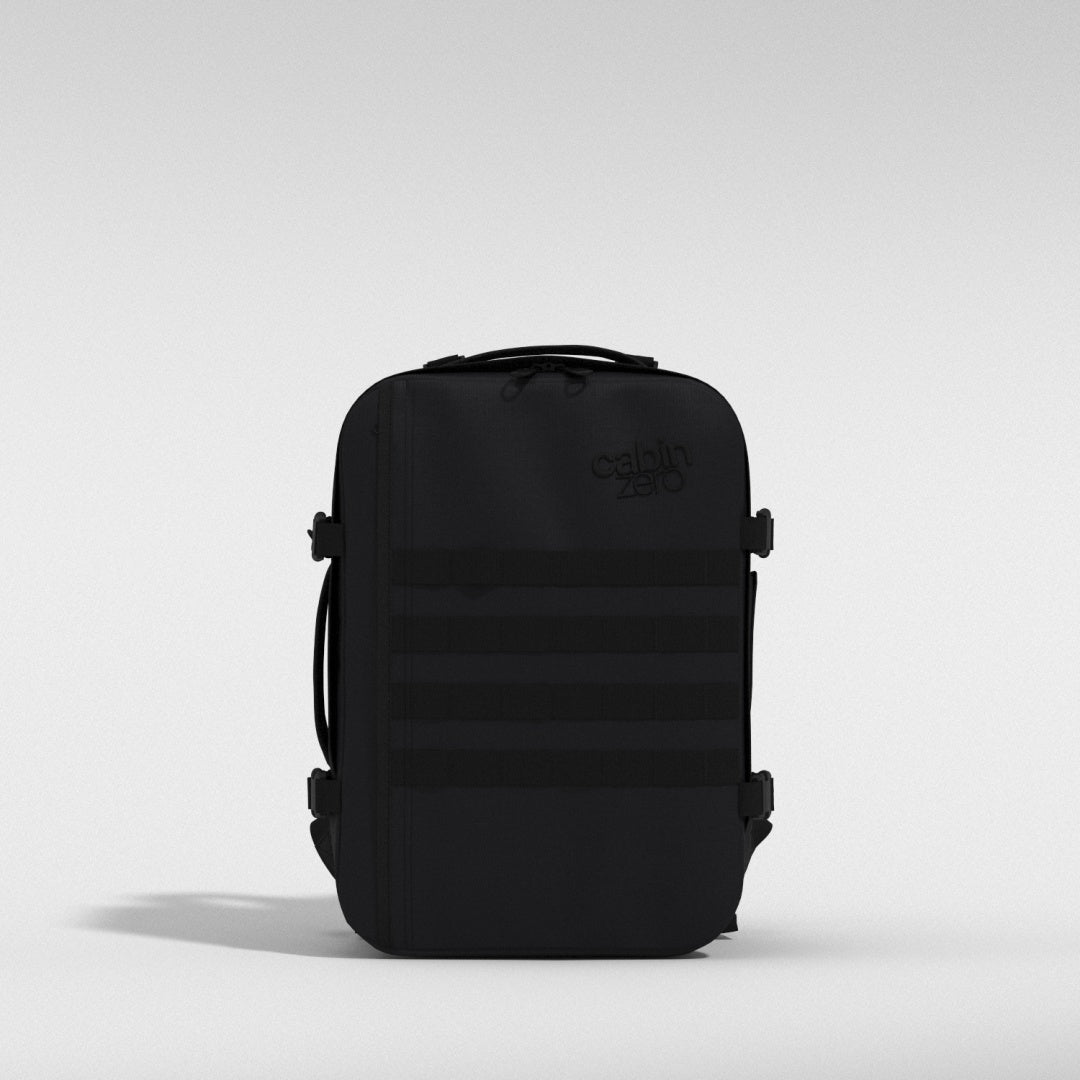

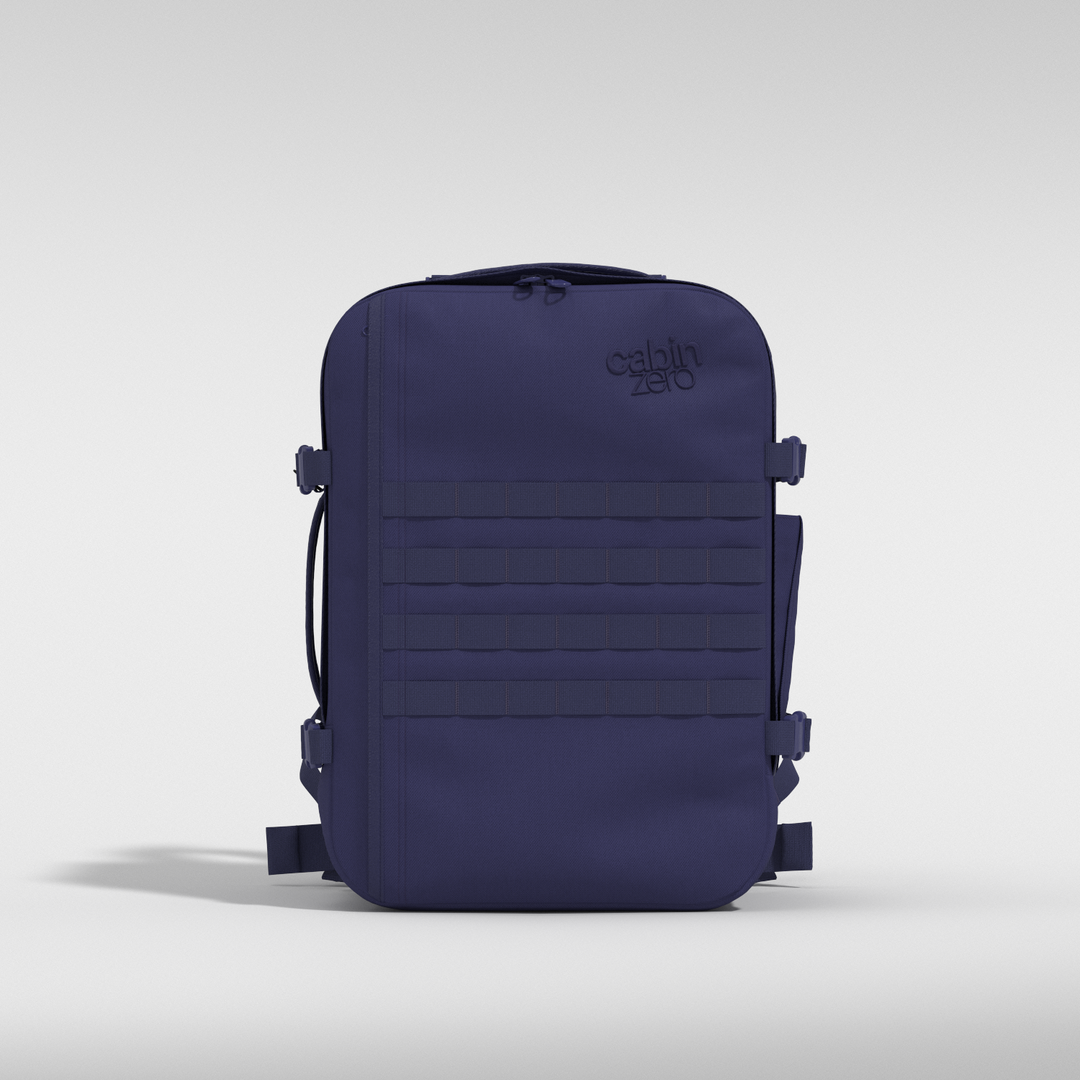

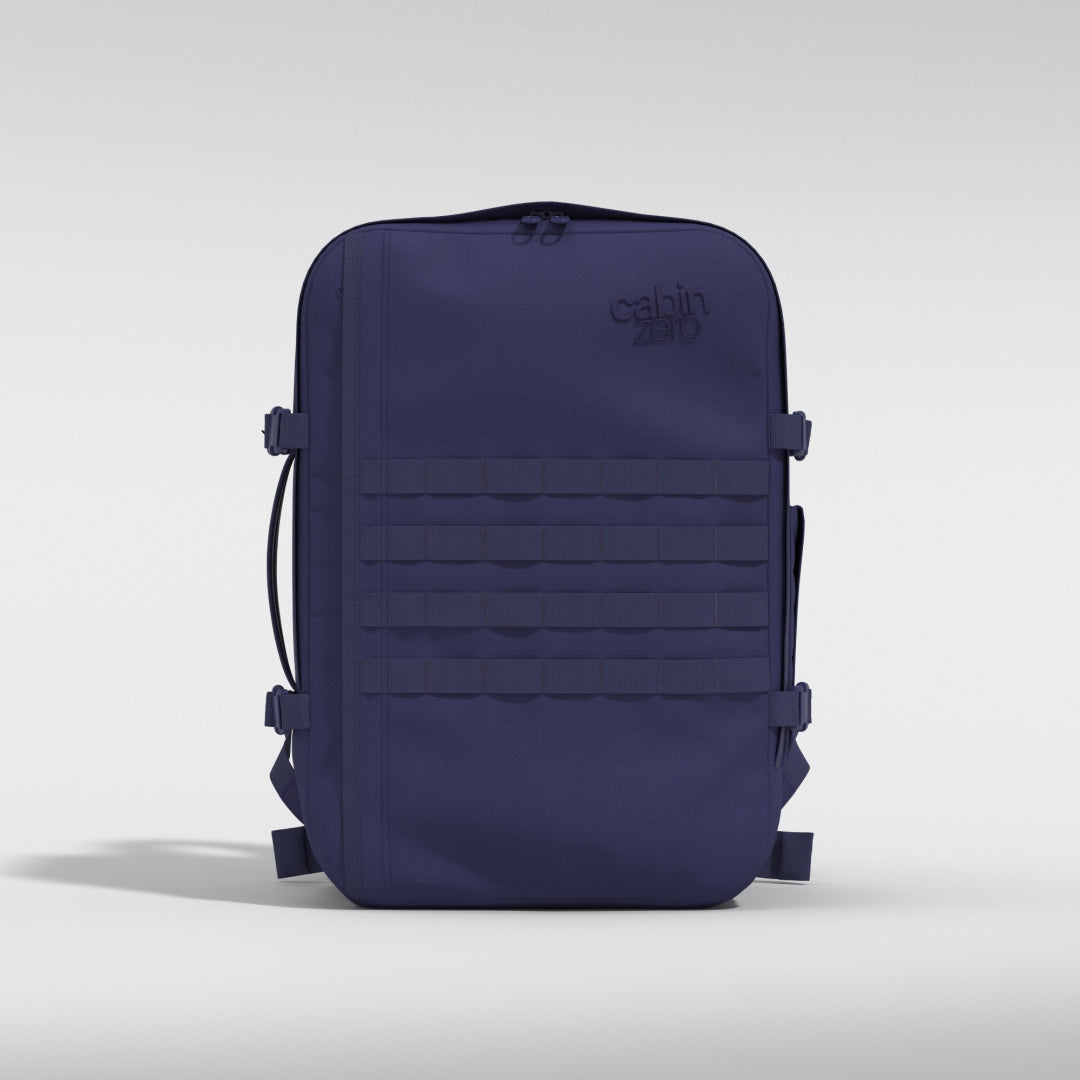

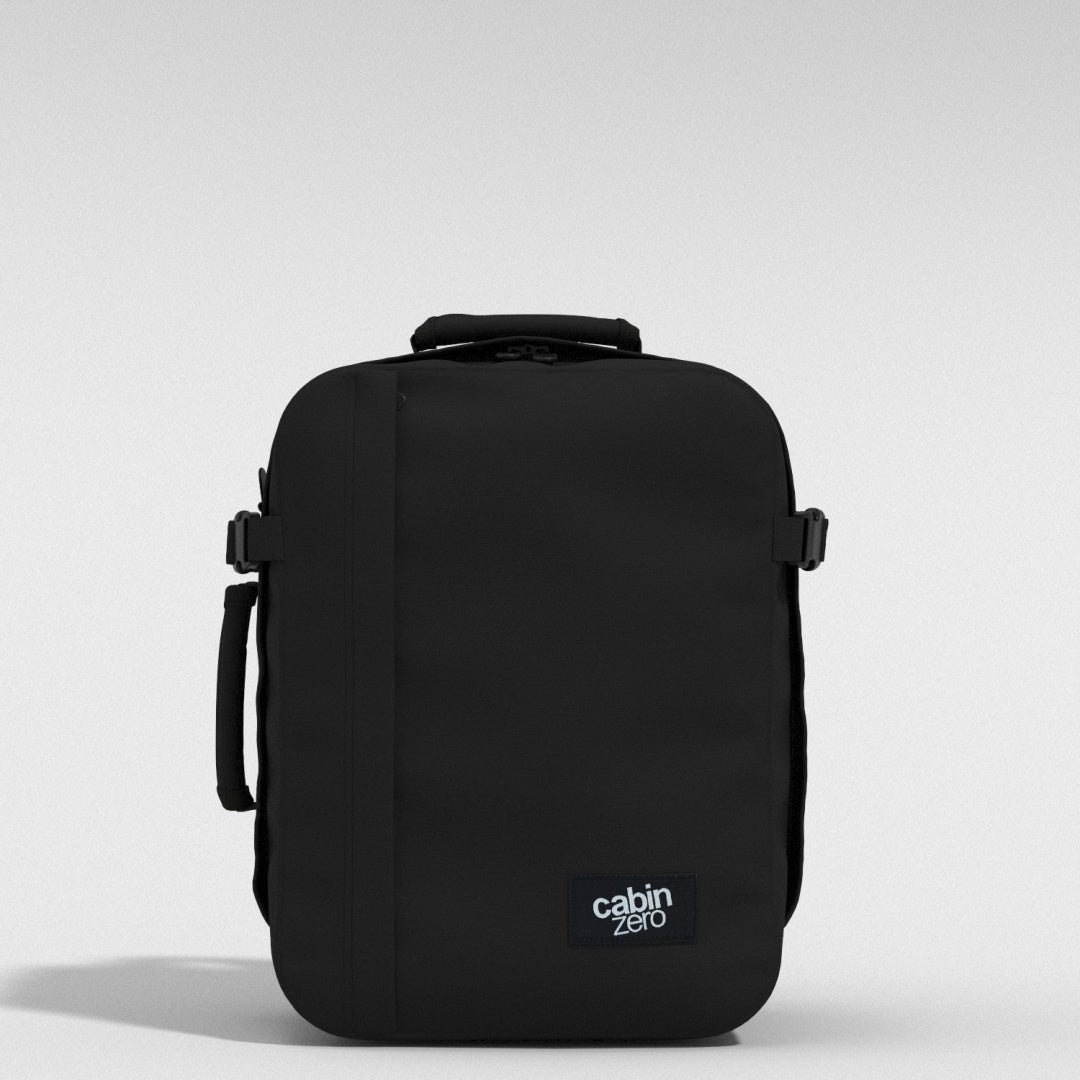






Leave a comment